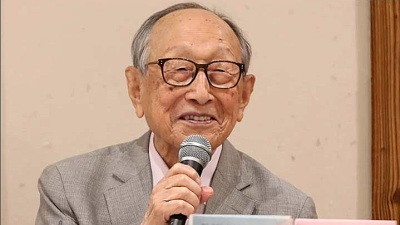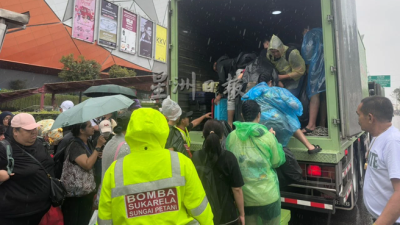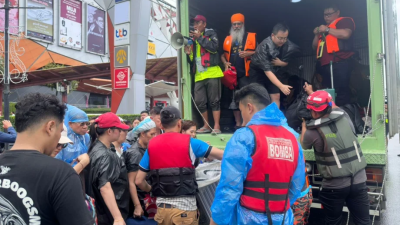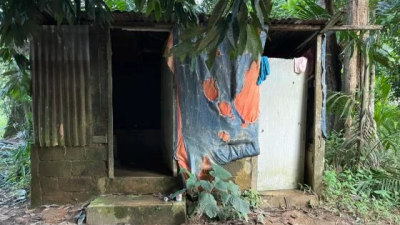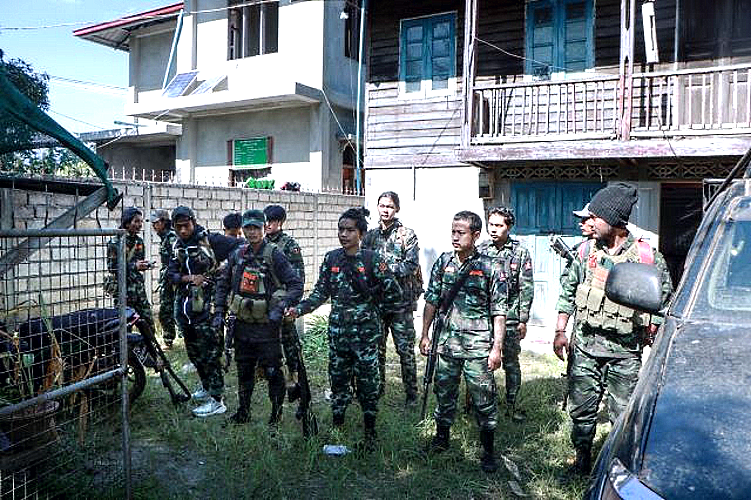
After hosting a three-day meeting with key non-junta parties in Jakarta last week, the Office of the Special Envoy Engagements with Myanmar Stakeholders at the Foreign Ministry should have obtained a complete and up-to-date picture of the civil war in Myanmar, especially the reported demoralisation of the junta regime soldiers.
However, the meeting will be a waste of time if no action follows.
“As a fellow member of ASEAN, Indonesia is committed to continuing to help the people of Myanmar find a comprehensive political solution for durable peace and stability in Myanmar,” said Ambassador Ngurah Swajaya from the Office of the Special Envoy after the Nov. 20-22 gathering.
Indonesia still has about one month to realise such a commitment before Laos takes over the ASEAN chairmanship in January 2024.
President Joko “Jokowi” Widodo and Foreign Minister Retno Marsudi are now focusing on the United Nations Climate Change Conference (COP28), but this does not mean the President can ignore the Myanmar issue. He can communicate with other ASEAN leaders when they meet in Dubai for COP28.
Reports have it that resistance groups in Myanmar are now intensifying their attacks on the military, which could hand the junta’s army a defeat.
A victory for the rebels, however, may create a new power struggle, at the expense of the Myanmar people.
The opposition groups are actually divided; they have joined forces to fight a common enemy, the junta government.
According to media reports, powerful armed ethnic militias have joined with resistance forces in recent weeks to mount major new offensives with unprecedented coordination, exposing the limits of the profoundly unpopular junta’s capabilities as it loses strategic border towns, critical military positions, and vital trade routes at a scale not seen in decades.
Rebels claimed widespread victories, including four border crossings in the northern part of Shan state, and the military government acknowledged soon after fighting began that it had lost three towns.
According to the UN Office for Humanitarian Affairs (OCHA), while the latest escalation of the conflict since Oct. 27 has not yet stretched to major cities like Yangon, Mandalay or Naypyidaw, the new development marked a turning point in the resistance.
There is another critical factor in the new development. The media has reported that China has repeatedly warned the Myanmar junta to maintain order in the borders between the two nations because criminal gangs who operate there are targeting Chinese nationals.
Thousands of Chinese people have fallen into the gangs’ trap, prompting Beijing to demand the junta to act more firmly.
Considering the worsening conflict in Myanmar and its repercussions in the region, President Jokowi should call for an emergency meeting with ASEAN leaders to address the current developments in Myanmar after the climate conference.
Laos, the next ASEAN chair, will most likely welcome President Jokowi’s initiative because it will help the country continue ASEAN’s policy on Myanmar.
In their summit in Jakarta in September, the regional leaders agreed to form a troika on Myanmar, which comprises Laos as the 2024 chair, Indonesia as the 2023 chair and Malaysia as the 2025 chair. The purpose is to ensure the continuation of a united stance on Myanmar.
ASEAN should engage China in the initiative, as the Asian giant has started to bear the brunt of the war in Myanmar. Besides, China is Myanmar’s biggest trading partner and has maintained good relations with the junta regime.
China also has good relations with Myanmar’s opposition. Aung San Suu Kyi had enjoyed a warm relationship with Chinese President Xi Jinping before the junta ousted her in the Feb. 1, 2021 coup.
During their summit in Jakarta in September, ASEAN leaders, minus Myanmar’s representative, repeated their condemnation of the brutality of the military junta in Myanmar.
They also decided to maintain their exclusion of Myanmar from all ASEAN official activities, unless the junta proves its commitment to the five-point consensus (5PC), which requires the military regime to end the violence and work with ASEAN to restore peace and democracy in the strife-torn country.
With the war and attacks on humanity engulfing Gaza, ASEAN, especially its majority Muslim member states, has seemed to lose focus on the Myanmar crisis.
The meeting organised by the Office of the Special Envoy Engagements with Myanmar Stakeholders in Jakarta last week, therefore, was a step in the right direction.
The objective of the gathering, according to the Indonesian Foreign Ministry, was to enable inclusive talks, reduce violence and support humanitarian efforts, in line with the 5PC agreed to by Myanmar’s military with ASEAN leaders in an emergency summit in Jakarta in April 2021, just three months after the military grabbed power from the democratically elected government of Suu Kyi.
“The office of the special envoy also facilitated the exchanges of ‘messages’ from each group that were expected to pave the way for a possible preliminary dialogue,” the Foreign Ministry statement said.
The meeting participants included pro-democracy groups, ethnic minority armies, the shadow National Unity Government (NUG), “interlocutors” who represented the junta and Lao diplomats.
“Upon receiving the respective messages, stakeholders indicated positively on the possibility of convening dialogues inclusively and genuinely soon,” the statement said, indicating that there would be another follow-up meeting.
Myanmar is moving closer to becoming a failed state now that the junta leader Gen. Aung Min Hlaing looks unable to unite the military, which reportedly is facing demoralisation in regions where rebels are strengthening their strongholds.
Even when the opposition groups eventually have the power to force the military to come to the negotiation table, there is no guarantee long-lasting peace will prevail in Myanmar.
President Jokowi, with the help of his chief diplomat Retno, needs to launch another diplomatic offensive to bring millions of Myanmar’s people out of the crisis by hosting an emergency summit with other ASEAN leaders.
ASEAN’s diplomatic effort to save Myanmar’s people has never been so pressing.
ADVERTISEMENT
ADVERTISEMENT









